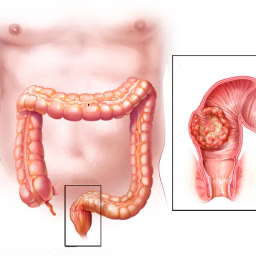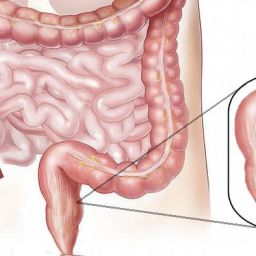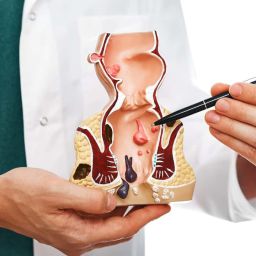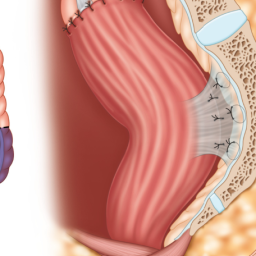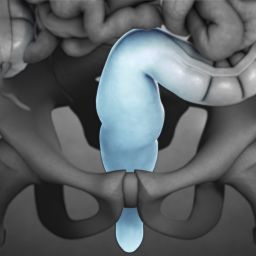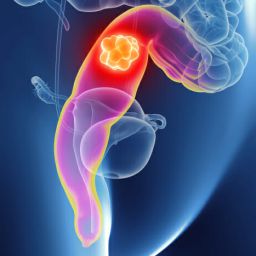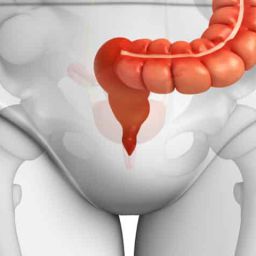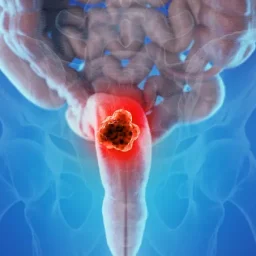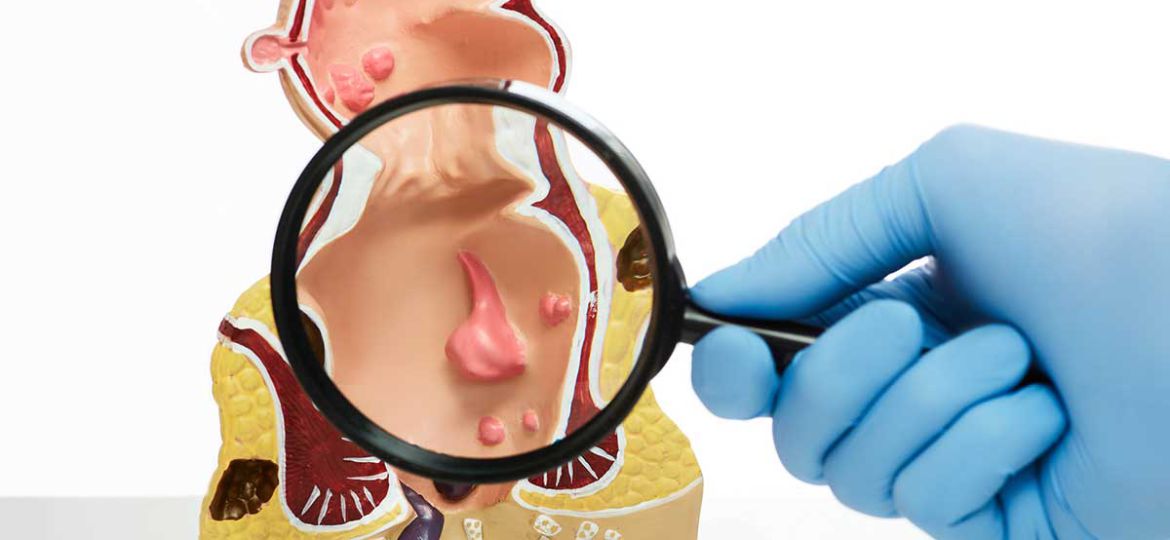
1. Types of Rectal Infections
1.1 Bacterial Infections Bacterial infections are among the most common causes of rectal issues. Several types of bacteria can lead to infections in the rectum, including Escherichia coli (E. coli), Salmonella, Shigella, and Clostridium difficile.
- Escherichia coli (E. coli): Often associated with food poisoning, this bacteria can also infect the rectum. It typically results in symptoms such as diarrhea, abdominal cramps, and rectal bleeding.
- Salmonella: Known for causing gastrointestinal infections, Salmonella can also infect the rectum, leading to symptoms like fever, vomiting, and severe diarrhea.
- Shigella: This pathogen causes shigellosis, which can lead to intense abdominal pain, fever, and bloody diarrhea, often with mucus or pus.
- Clostridium difficile: This bacterium is often associated with prolonged antibiotic use, causing a condition known as C. difficile colitis, which can lead to severe diarrhea and abdominal pain.
1.2 Viral Infections Viral infections of the rectum are less common but can still cause significant discomfort and symptoms. Some of the most notable viruses include Human Immunodeficiency Virus (HIV), Herpes Simplex Virus (HSV), and Human Papillomavirus (HPV).
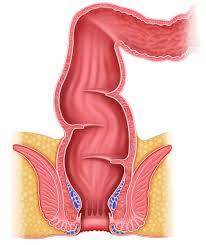
- HIV: Although primarily associated with the immune system, HIV can affect the rectum, causing inflammation and increasing the risk of other infections. The virus can enter through anal intercourse and cause rectal ulceration, making individuals more susceptible to secondary infections.
- Herpes Simplex Virus (HSV): HSV can cause anal herpes, characterized by painful blisters or ulcers around the anus. The infection can be recurrent, leading to flare-ups of sores and itching.
- Human Papillomavirus (HPV): HPV can cause anal warts, which may appear as small, flesh-colored growths around the rectum. In some cases, certain strains of HPV can lead to anal cancer.
1.3 Fungal Infections Fungal infections, though rare, can also affect the rectal area, particularly in immunocompromised individuals.
- Candida albicans: This yeast can overgrow in the rectum, causing a condition known as rectal candidiasis. It is often accompanied by itching, irritation, and a whitish discharge.
1.4 Parasitic Infections Parasitic infections in the rectum are relatively uncommon in developed countries but can still occur. Some parasites that can infect the rectum include Giardia, Entamoeba histolytica, and Strongyloides stercoralis.
- Giardia: A microscopic parasite that can cause giardiasis, leading to diarrhea, bloating, and abdominal cramps.
- Entamoeba histolytica: This amoeba causes amebiasis, which can result in severe abdominal pain, diarrhea, and, in some cases, rectal bleeding.
- Strongyloides stercoralis: This parasite can lead to chronic intestinal infections, and in severe cases, it may cause rectal symptoms such as pain and bleeding.
2. Symptoms of Rectal Infections
The symptoms of rectal infections vary depending on the type of infection and the underlying cause. However, common symptoms often include:
- Pain: This can range from mild discomfort to severe, sharp pain, particularly during bowel movements.
- Bleeding: Rectal bleeding is a common symptom of bacterial and viral infections, as well as parasitic infestations.
- Diarrhea: This is often associated with bacterial or viral infections and may be accompanied by mucus or blood in the stool.
- Fever: A fever is commonly present in cases of bacterial or viral rectal infections, indicating the body’s immune response.
- Itching and Irritation: Particularly in fungal and viral infections, the affected area may become itchy or irritated.
- Discharge: A discharge, which can be clear, mucus-like, or pus-filled, is often seen in infections like HPV or bacterial pathogens.
3. Diagnosis of Rectal Infections
To determine the exact cause of rectal infections, a healthcare provider will conduct a thorough examination, which may include:
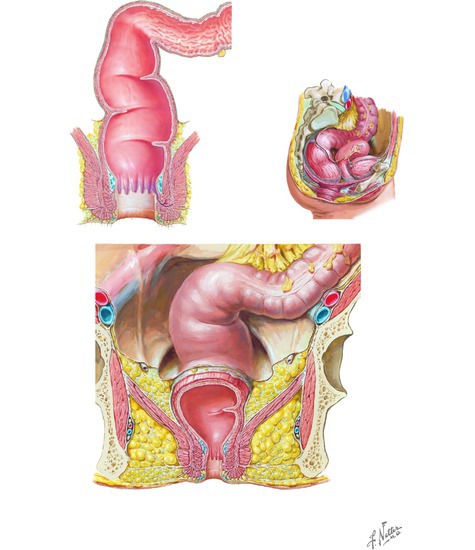
- Physical Exam: A visual inspection of the rectal area, including digital rectal exams, may be performed.
- Stool Cultures: This test helps identify bacterial or parasitic infections by analyzing stool samples.
- Blood Tests: Blood work may be done to assess for systemic infection or to check for conditions like HIV.
- Biopsy: In cases of persistent or severe symptoms, a biopsy may be taken to rule out conditions like cancer or chronic infections.
- PCR Testing: Polymerase chain reaction (PCR) testing is a highly sensitive method for detecting viral infections such as HPV or HSV.
4. Treatment Methods for Rectal Infections
Treatment for rectal infections varies based on the type and severity of the infection. Below are common treatment options:
4.1 Antibiotics Bacterial infections such as those caused by E. coli, Salmonella, or Shigella are typically treated with antibiotics. The choice of antibiotic will depend on the specific bacteria identified. In some cases, over-the-counter medications may be used for milder infections, while severe cases may require hospitalization and intravenous antibiotics.
4.2 Antiviral Medications Viral infections, such as those caused by HSV or HPV, may be managed with antiviral medications. For HSV, drugs like acyclovir can help reduce the severity and duration of outbreaks. For HPV, treatment focuses on removing warts through various methods such as cryotherapy or topical medications.
4.3 Antifungal Treatments Fungal infections like Candida overgrowth in the rectum are treated with antifungal medications. These can be topical creams or oral medications, depending on the severity of the infection.
4.4 Antiparasitic Drugs For parasitic infections like giardiasis or amebiasis, antiparasitic medications are prescribed. Common treatments include metronidazole for Giardia and tinidazole for Entamoeba histolytica.
4.5 Symptomatic Treatment In many cases, additional treatments may be used to manage symptoms. Pain relief medications, such as ibuprofen or acetaminophen, can help alleviate discomfort. Anti-diarrheal drugs may also be used, but these should only be used under the guidance of a healthcare provider to avoid complications.
4.6 Surgery In rare cases, surgery may be necessary for severe infections that cause complications like abscesses or chronic inflammation. Surgical intervention may also be required for conditions like anal cancer, which can arise from certain HPV infections.
Rectal infections can be uncomfortable and, in some cases, dangerous if left untreated. They can be caused by a variety of pathogens, including bacteria, viruses, fungi, and parasites, and their symptoms can range from mild irritation to severe pain and bleeding. It is crucial to seek prompt medical attention when symptoms of rectal infection appear to prevent complications. Treatments vary based on the underlying cause of the infection, but with proper care, most infections can be effectively managed and resolved.

